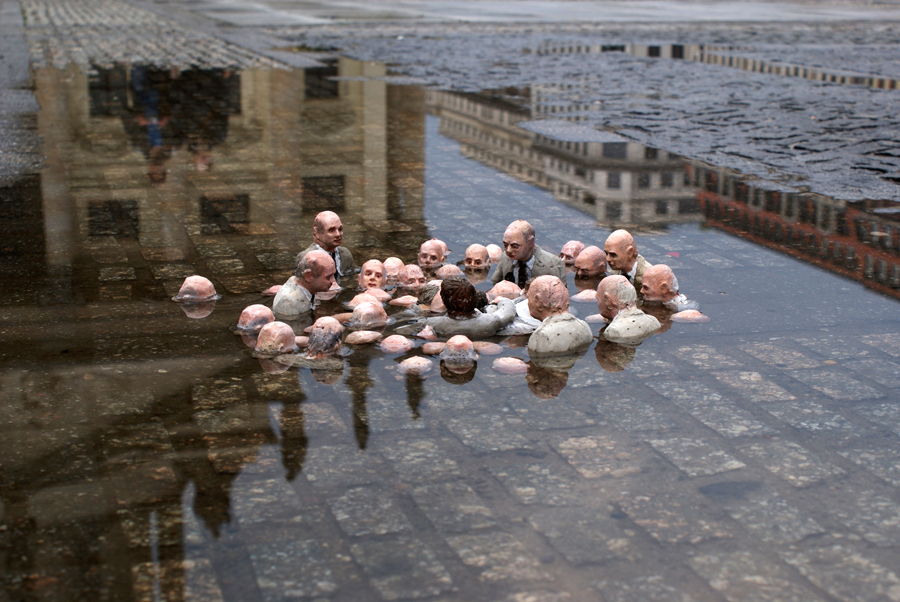It is logical that the central focus of climate action should directly confront the main contributor to climate change, the use of fossil fuels to provide by primary institutional consumers such as industry and other significant actors such as governments and the military. The approach is do everything we can to keep it in the ground and promote sustainable forms of energy production. We choose to protest and confront the main culprits who do not show any true intention of converting their historical reliance on fossil fuels. The success of our achievements, especially in the Pacific Northwest, is crowned by the addition of one more victory in stopping fossil fuel infrastructure expansion, the definitive demise of Jordon Cove. This story is well documented by Barbara Bernstein’s interview on Locus Focus. Whether and how we achieve our goals for climate change depend on mobilizing global and local solidarity for effective action. Such actions are not limited to protest and confrontation, but must also include creative ways of reaching global populations with messages that inspire creation of radical changes, not simply of energy production and utilization, but how we live our lives and relate to one another. This entails recognizing the dynamics of change through time and space, i.e. how do we view the relationships between local and international movements and between immediate, urgent projects alongside the longer term visionary goals for a better world?
The view these two dimensions bring into focus includes the politics of climate change policy and the way in which climate change impacts politics, for example, Alexander Lukashenko manipulated climate refuges flooding Europe (many of whom are escaping wars which have their origin in climate change) to harass the Western European nations who are critical of his regime. In the past few days, KBOO has offered some excellent programming which elucidates the complexity of the politics of global climate change. Examples are the program on Alternative Radio this week entitled Radical views from the Global South. Today, Democracy Now had an excellent segment about “A Bigger Picture” by Ugandan climate activist Vanessa Nakate on bringing new voices to the climate fight. On KBOO, there was a discussion on local climate politics, the aforementioned Locus Focus program. If one views the pandemic as related to climate change effects in terms of its origin and the way in which it exposed health inequities similar to the pattern of environmental injustices, one might see a connection between a local issue of education policy which comes out of the covid-19 impact on the Portland Public Schools and how quality of life is threatened by both climate change and covid-19’s tandem impacts.
Our quality of life is being threatened by the impact of climate change, but it that is more clearly identified and expressed as a threat to survival. Populations are already suffering extreme effects as exemplified by the migration disasters. We have experiencing losses and extinctions, both in the natural world and the social world. The newspaper is daily filled with stories of them. It is also filled with the mounting evidence and documentation of many threats to survival and they seem to be mounting rather than diminishing. In addition to climate change and often in conjunction with it, there are threats from war and increasingly of nuclear war. The quest for energy has led to a proliferation of nuclear plants, mostly located on the boarder of the sea. Natural disasters, combined with the consequences of climate change and technological error could create a cascade of events leading to nuclear catastrophe as we have seen in Chernobyl, Three Mile Island and Fukishima. We know well the potential threats of sea level rise and tsunami along with the risk of danger from energy plants and storage near fault lines. It seems like the pace of these threats has multiplied. Climate scientists are reluctant to make any statement regarding a timeline to inescapable threat to survival due to climate change, but the Bulletin of the Atomic Scientist has been steadily moving the hand of the doomsday clock toward midnight. In the news recently are discussions of the authorization of more funds in the Pentagon budget for nuclear expansion and the threats to nuclear stability of requests from Israel for the United State to militarily engage Iran.
Wednesday Talk Radio’s Paul Roland had an excellent discussion with Robert Heinberg about his recent book, Power: Limits and Prospects for Human Survival. He suggests that the solution to this dilemma requires sacrifice from the elites who hold power, but we know that is not likely any time or soon enough. This work, by a member of the Post Carbon Institute seems to capture what I have been trying to tersely summarize in this comment. I believe the essential conclusion one can take from such discussions is that we are clearly at a precipice and that there is much confusion about what we can expect and when. In this scenario, I believe that following the principle values and goals of XR makes it necessary, while focusing our attention on confronting the fossil fuel institutions that we consider the real possibility that we cannot indeed reverse the trend toward extinction and also address the ways we can mitigate the effect of collapse through the approach of Deep Adaptation. This should be piece of Regenerative Culture and I recommend considering it in our next retreats.
Photo Credit: Follow the leaders, Isaac Cordal

